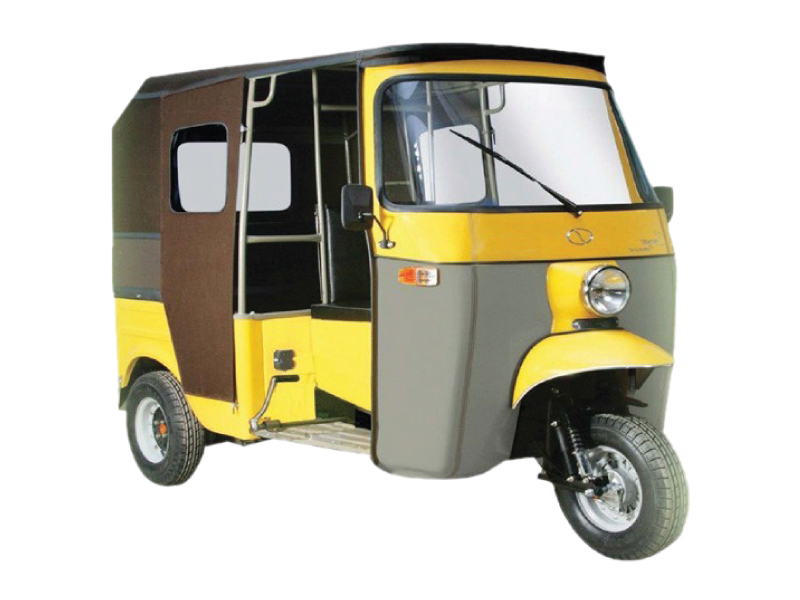
MINGORA:
A large majority of the 16,000 rickshaws plying the roads of Mingora do not have legal permits and are fitted with engines that violate the government’s regulations, causing noise and air pollution in the valley.
Insiders within Swat’s public transport sector say there a number of irregularities in the system. Thousands of rickshaws have been brought from Lahore, Karachi, Peshawar, Nowshera, Karak, DI Khan and Mardan and running without check in Swat.
“There are many vehicles with the same number plate; I have seen at least 11 three-wheelers with the same registration number,” said a driver, requesting anonymity. “If a traffic policeman stops them, the rickshaw driver says the registration papers are at home. He later gets the documents from the actual licence holder and shows them to the police.”

Centre of activity
Being the financial hub of the valley, many people from across the region make their way to Mingora to drive rickshaws and earn a livelihood, while many locals own the three-wheelers and rent them out as a business.
“People from several districts come to Mingora. It doesn’t matter if you have a valid driving licence or not; as long you know how to drive, it is easy money,” said Abdullah, a rickshaw driver.
Moreover, some rickshaw drivers have installed four-stroke 600cc engines believing them to be more efficient. This is in direct violation of the legal regulations which require rickshaws to be fitted with four-stroke 200cc engines.
Of laws and violations
The district administration is trying to crack down on this illegal practice and many unlicenced rickshaws were recently impounded. “Following our crackdown, the union of rickshaw drivers submitted a case in court and we were ordered to release the vehicles,” said Zerab Gul, a traffic police in-charge in Mingora.
Gul added the drivers also often complain to the army or MPAs to get their impounded vehicles released.
The district administration has directed rickshaw owners and drivers to replace two-stroke engines with four-stroke 200cc ones. According to a study of the Pakistan Environment Protection Agency, the two-stroke rickshaw emits twice as much carbon dioxide and 37 times more hydrocarbons than a four-stroke rickshaw.
However, many drivers are yet to comply. In fact, they openly flout the directives and use 600cc engines instead, claiming 200cc engines are not efficient on mountainous roads of the valley.
“The 200cc engine is not powerful enough for a rickshaw to be driven on roads to mountains,” said Suleman, a rickshaw driver in Amankot. He explained that he had earlier fitted his vehicle with the government sanctioned engine but the machine broke down within six months, causing him a huge loss.
Suleman went on to install a 600cc engine but the traffic police has asked him to remove it. “The 660cc engine is much better because it is powerful, noiseless and discharges no smoke,” he added.
Rickshaw drivers in Mingora demanded the traffic department to allow them to install the 660cc engine instead of 200cc engine which is a better fit for motorbikes.
Published in The Express Tribune, January 4th, 2015.




























































COMMENTS
Comments are moderated and generally will be posted if they are on-topic and not abusive.
For more information, please see our Comments FAQ